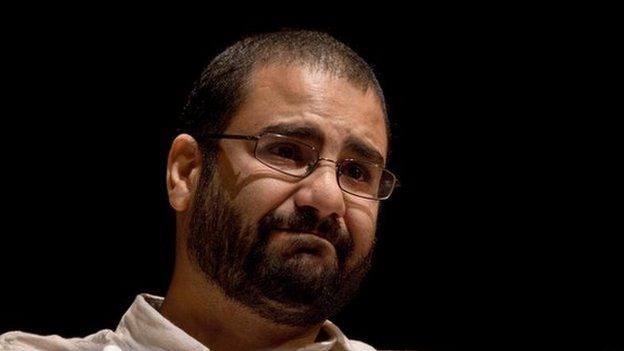Alaa Abdel Fattah: UK urged to help jailed British-Egyptian activist
- Published
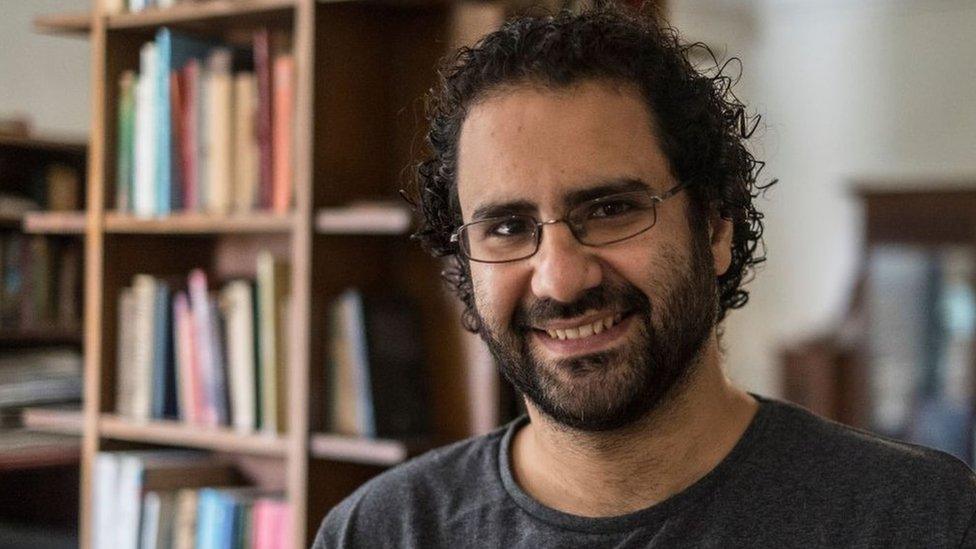
The family of Alaa Abdel Fattah, pictured here in 2019, said he become a British citizen in December 2021
A group of MPs and peers has written to the UK government pressing for urgent help for a British-Egyptian activist imprisoned in Egypt.
Alaa Abdel Fattah, 40, is said to have been on hunger strike since 2 April.
A letter to Foreign Secretary Liz Truss says he has been held in "inhumane" conditions as a political prisoner, external and asks her to call for his release.
It says the British embassy has not been granted consular access and that this could set "a dangerous precedent".
The Egyptian government has previously dismissed accusations over prison conditions and insisted there are no political prisoners in the country.
Alaa Abdel Fattah, a pro-democracy blogger and activist, appeared widely in the media during the 2011 protests in Cairo's Tahrir Square that led to the downfall of long-time president Hosni Mubarak.
But he has gone on to spend long periods in jail.
Since President Abdul Fattah al-Sisi came to power in 2014, the activist has spent most of the time in prison or police detention.
Most recently, he was jailed for five years for "spreading false news" after sharing a Facebook post about human rights abuses in Egyptian prisons.
The parliamentarians' letter describes how at his trial in a state security emergency court, the defence was not granted access to the case file, and that neither the prosecution nor the defence were invited to present their cases before his sentence was passed. It is not possible to appeal against emergency courts' verdicts.
The letter is signed by 10 MPs - including the Conservative Party's David Jones, Labour's Ben Bradshaw and the Liberal Democrats' Layla Moran - as well as 17 members of the House of Lords.
Until this week Alaa Abdel Fattah had been kept behind bars at the notorious Tora Prison, where the letter said he was deprived "for two and a half years of reading materials, exercise, sunlight or bedding".
However, the Egyptian authorities have now confirmed that he has been moved to a new prison complex, north of Cairo, following a request from the state human rights body.
In a brief statement posted on Facebook on Wednesday, the interior ministry said that it "had responded to the request of the National Council for Human Rights (NCHR) to transfer the convicted activist, Alaa Abdel Fattah, to the Rehabilitation Centre in Wadi al-Natrun."
Responding to the news, Alaa Abdel Fattah's sister Mona Seif said the significance of the move was not immediately clear.
"We don't know if this means an improvement in conditions or not, because as we know the problem with the prison that Alaa was in is not just that it [was a] maximum security prison," she explained in a Facebook video, external.
"It's that the ministry of interior and state security and Egyptian authorities [were] actively depriving him of every facility and every right... that should be easily provided."
Previously, Ms Seif had dismissed as "unbelievable" pro-government media reports quoting a security source as saying that her brother was not on a hunger strike but was eating three meals a day.
Allow X content?
This article contains content provided by X. We ask for your permission before anything is loaded, as they may be using cookies and other technologies. You may want to read X’s cookie policy, external and privacy policy, external before accepting. To view this content choose ‘accept and continue’.

Alaa Abdel Fattah's family has expressed growing concern for his wellbeing.
His mother, Laila Soueif - a London-born mathematics professor and sister of the author Ahdaf Soueif - has expressed disappointment that the British authorities have been able to do little to intervene since her son was granted British citizenship in December 2021.
"It's clear that my son's life now lies in [Prime Minister] Boris Johnson and Liz Truss's hands," she said.
"We have done everything we can, we have fought for Alaa's freedom for almost a decade, but now we are out of time, and I fear for his life."

You may also be interested in:
Ten years after protests in Egypt ousted then-President Hosni Mubarak, what has changed?
- Published11 April 2022
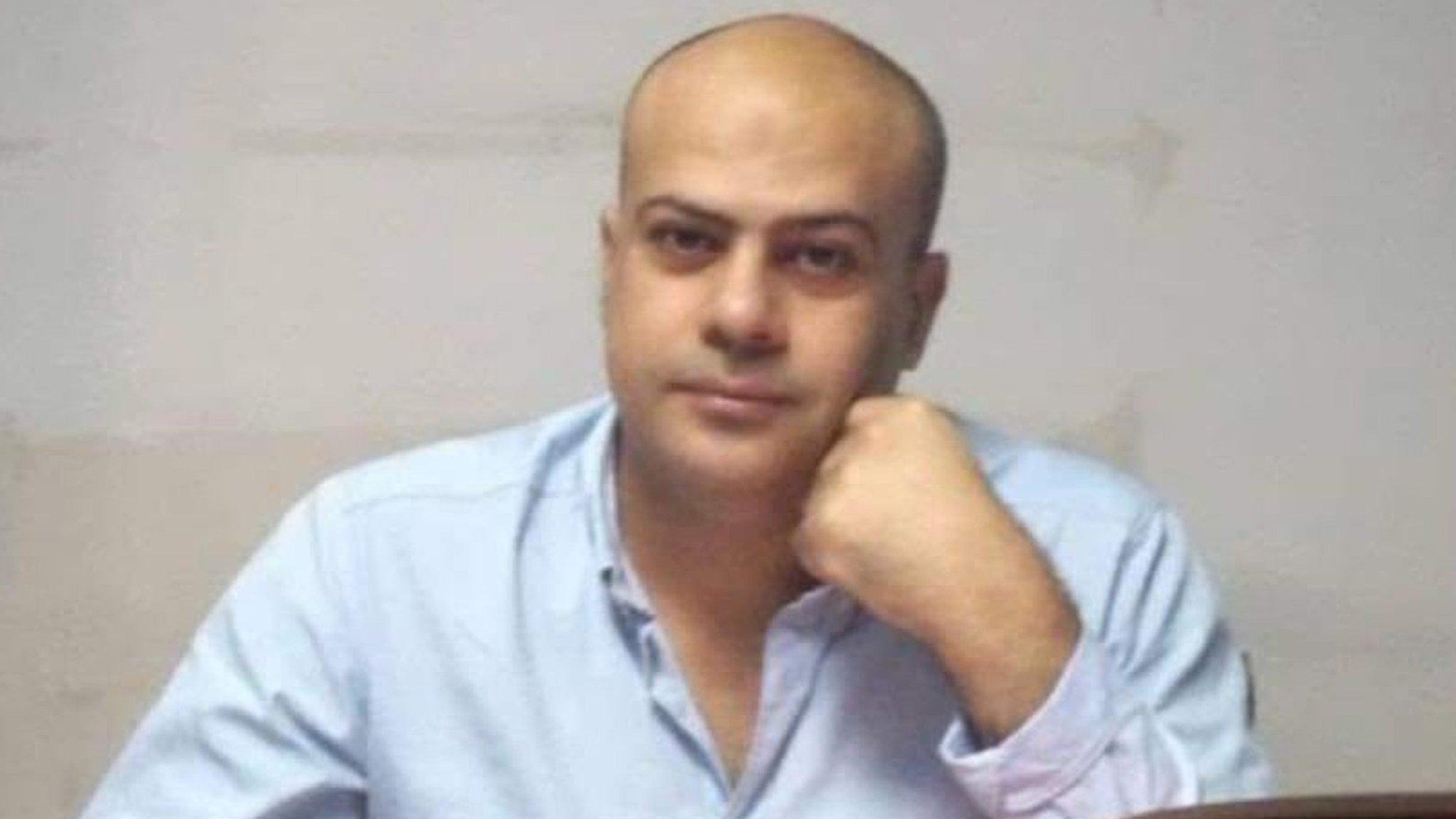
- Published20 December 2021
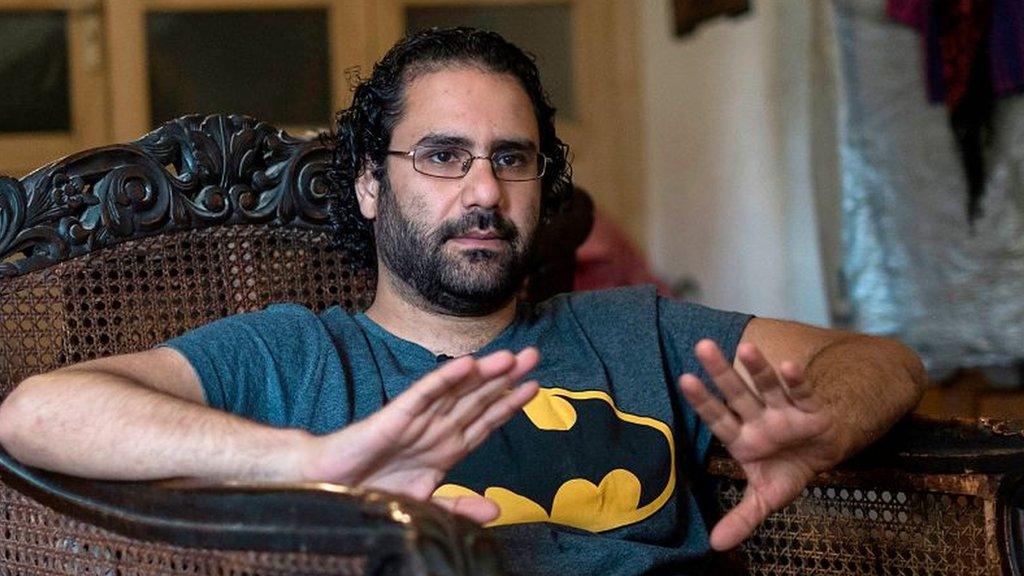
- Published29 September 2019
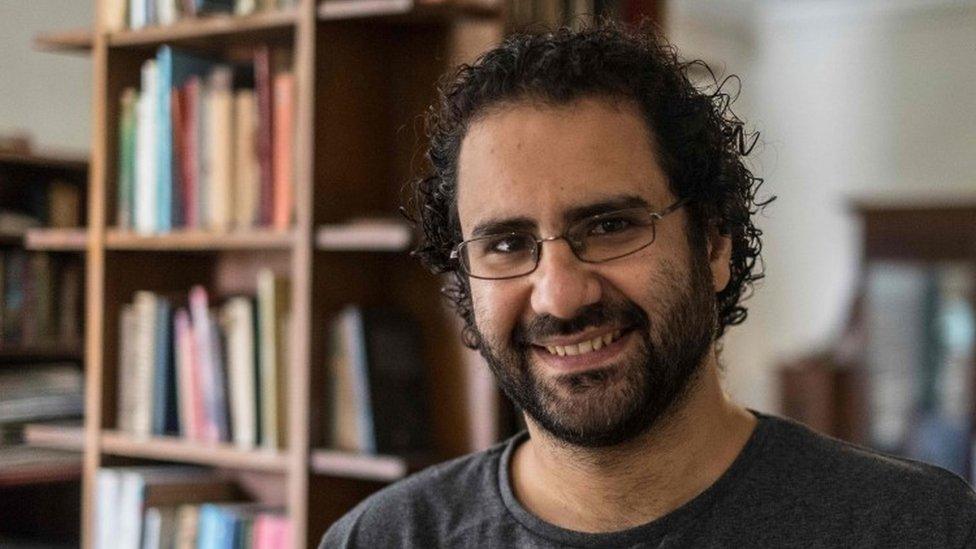
- Published29 March 2019
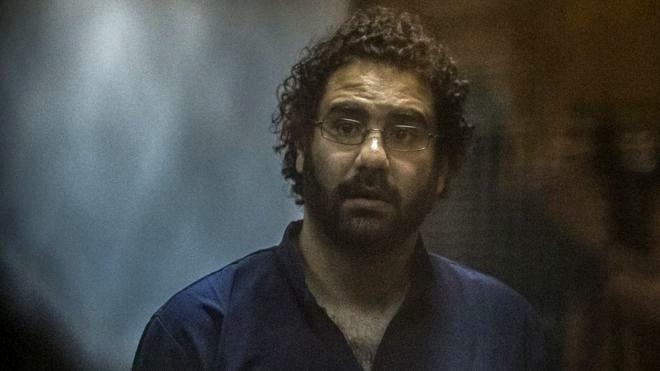
- Published25 January 2017
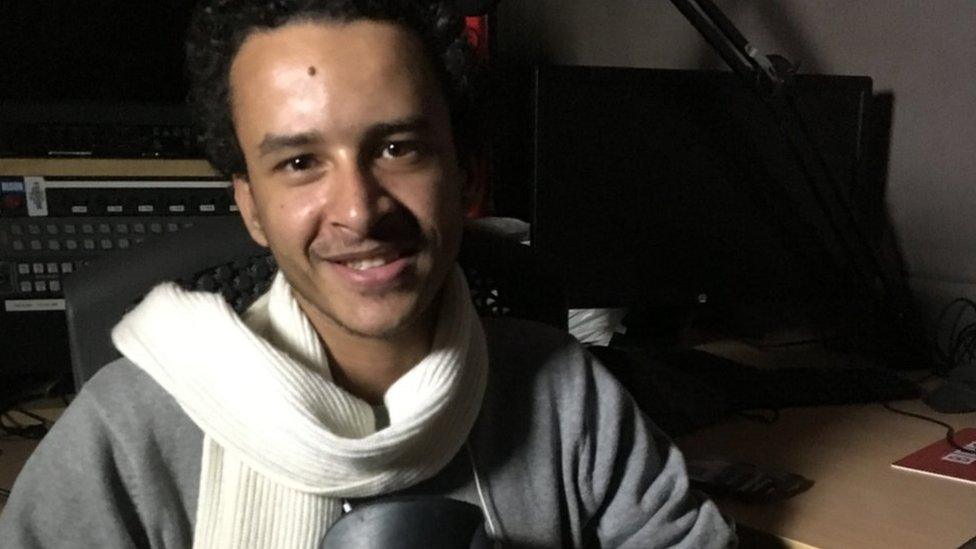
- Published23 February 2015
